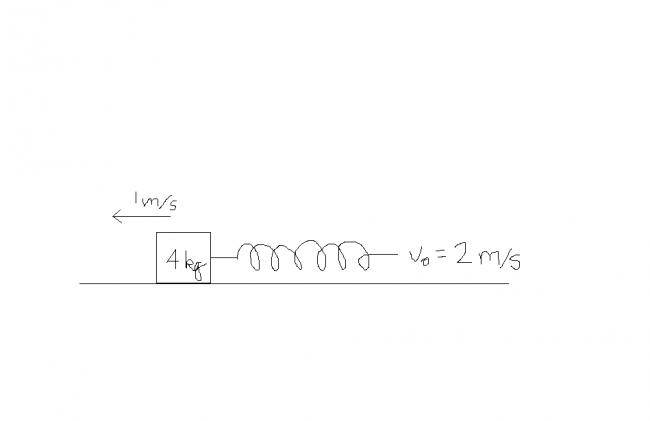hey btetarbe, please check the answers once again.
because the answer is 60 cm, and its not in the options.
I think the spring constant should be 100N/cm, not 100 N/m [1]

The spring block system lies on a smooth horizontal surface. The free end of the spring is being pulled towards the right with constant speed v0 = 2m/s.The spring constant is 100 N/m. At t=0, the spring is unstretched and the block has a speed 1m/s to left. The maximum extension of the spring is :-
a) 2 cm b) 4 cm c) 6 cm d) 8 cm
dude.. atleast write once that u have edited the question :D
I din notice that u did that :)
Now this makes more sense :)
hey btetarbe, please check the answers once again.
because the answer is 60 cm, and its not in the options.
I think the spring constant should be 100N/cm, not 100 N/m [1]

The elementary solution, you can calculate time, the equation of motion etc etc also:-
( ab is the unstreched spring at t=0, a'b is the streched spring at t=t )
at t=0 , Vm = -1 & Vb = 2
Suppose at time t=t, the extention in spring = x
=> displacement of m from t=0 will be 2*t - x , lets denote it by y ... this means Vm = dy/dt
=> dy/dt = 2 - dx/dt
=> d2y/dt2 = - d2x/dt2 ------- (1)
also d2y/dt2 = kx/m -----------------(2)
=> d2x/dt2 + kx/m = 0
=> x= A Sin(ωt) ... where ω=√k/m
=> dx/dt = Aω Cos(ωt)
now at t=0, y=0, x=0 & dy/dt=-1
this gives xmax = A = (2+1) * √m/k =0.6 m = 60 cm